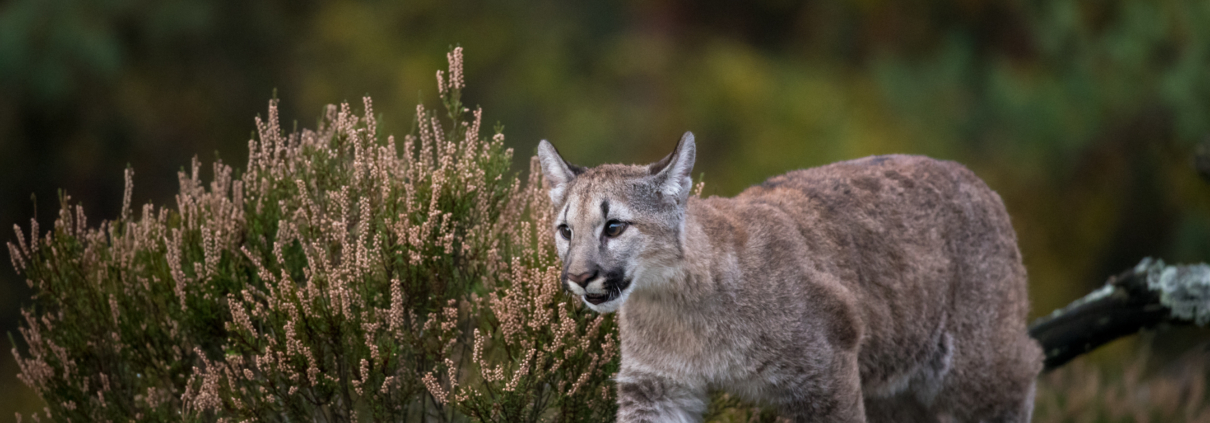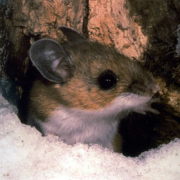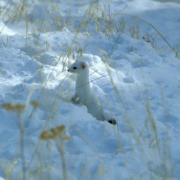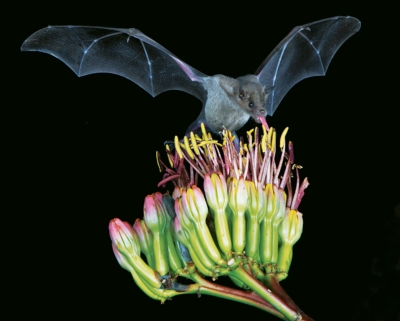Bipartisanship for Biodiversity – Funding Our Future
There is a global biodiversity crisis. We know this from the IPBES report published earlier this year and the updated IUCN Red List published this week. These reports lay it out in stark terms – millions of species edging towards extinction. For many in the U.S., this crisis can sometimes seem distant, happening in faraway rain forests and the deepest oceans. But it’s happening right here in the U.S., where 12,000 animal species are currently considered in need of conservation action. Iconic creatures like the whooping crane and the Florida panther are among those U.S.-based species listed as endangered.
So why don’t we easily connect to the “global biodiversity crisis”? In the U.S., ‘biodiversity’ is not a term we usually use to describe the natural world. It’s ironic that we shy away from it since it is a term first suggested by a trio of Americans. Tom Lovejoy, E.O. Wilson and Walter G. Rosen of the Natural Resources Conservation Service (NRCS) are all credited with promoting the idea of the diversity of life and coining the term ‘biodiversity’. In the U.S. we talk instead about ‘wildlife,’ ‘nature’ and ‘habitat,’ and we focus on individual species whether regulated game species, listed species or other species of concern. We do this because ‘conservation’ practice follows policy and it follows the funding.
In the U.S. there are a variety of funding sources for wildlife conservation. These sources are levies on sales of hunting and fishing equipment, and from appropriated federal and state funds to support recovery of listed species and management of others. Despite the variety of funding sources, there remains a distressing deficiency between what is available and what is needed to support and secure America’s wildlife, aka biodiversity.
Less than 1% of the federal budget is currently allocated to nature-based efforts across many agencies at both the federal and state levels. For wildlife efforts, the majority of spending happens at the state levels, supported by the levies and through the State Wildlife Grant Program, which provides federal grant funds to state fish and wildlife agencies for programs that benefit wildlife and their habitats, including non-game species. Recent studies by the Association of Fish and Wildlife Agencies and others have shown a significant gap in funding that, if allowed to continue, will severely impact the future of 12,000 species of greatest conservation concern. We cannot allow this to happen.
America’s nature is non-political so a bipartisan solution (a rarity in these times of deep division) is being promoted in the form of the Recovering America’s Wildlife Act that was recently introduced to Congress. The Act seeks to dedicate $1.3 billion annually to state fish and wildlife agencies to implement their science-based wildlife action plans, and an additional $97.5 million for tribal fish and wildlife managers to conserve fish and wildlife on tribal lands and waters. If passed, this Act will represent a significant step towards addressing the global biodiversity crisis that will impact us all.
The Act will not just benefit nature. It will also benefit society including the private sector which seeks stability and predictability in which to do business and healthy environments for its employees to live, work and play. Healthy wildlife populations will reduce the number of newly-listed species and regulations on land use. Robust biodiversity will contribute to resilient natural communities that are needed to withstand uncommon weather patterns and other climate-driven events. Vibrant nature elevates communities and makes them truly great places to live. Everyone benefits from biodiversity so everyone should support it.
The Association of Fish and Wildlife Agencies and the National Wildlife Federation are two of the driving forces for this piece of legislation. They are eager to bring private sector entities together in support of the Recovering America’s Wildlife Act to show that biodiversity is not just a political concern nor an environmental advocacy concern but a concern of everyone seeking a stable and healthy future.
For more information about the Act and how you can help, please contact Sean Saville at the Association of Fish and Wildlife Agencies.
From the Association of Fish and Wildlife Agencies:
We have developed a new sign-on letter for business partners to demonstrate their support for the legislation and to send a strong signal to Congress that this proactive, non-regulatory approach to preventative fish and wildlife conservation funding is urgently needed. To conservation partners in the private sector and trade associations representing corporate members please take a minute to fill out the short sign-on form and add your business to the list of supporters. http://bit.ly/RAWABusinessLetter








